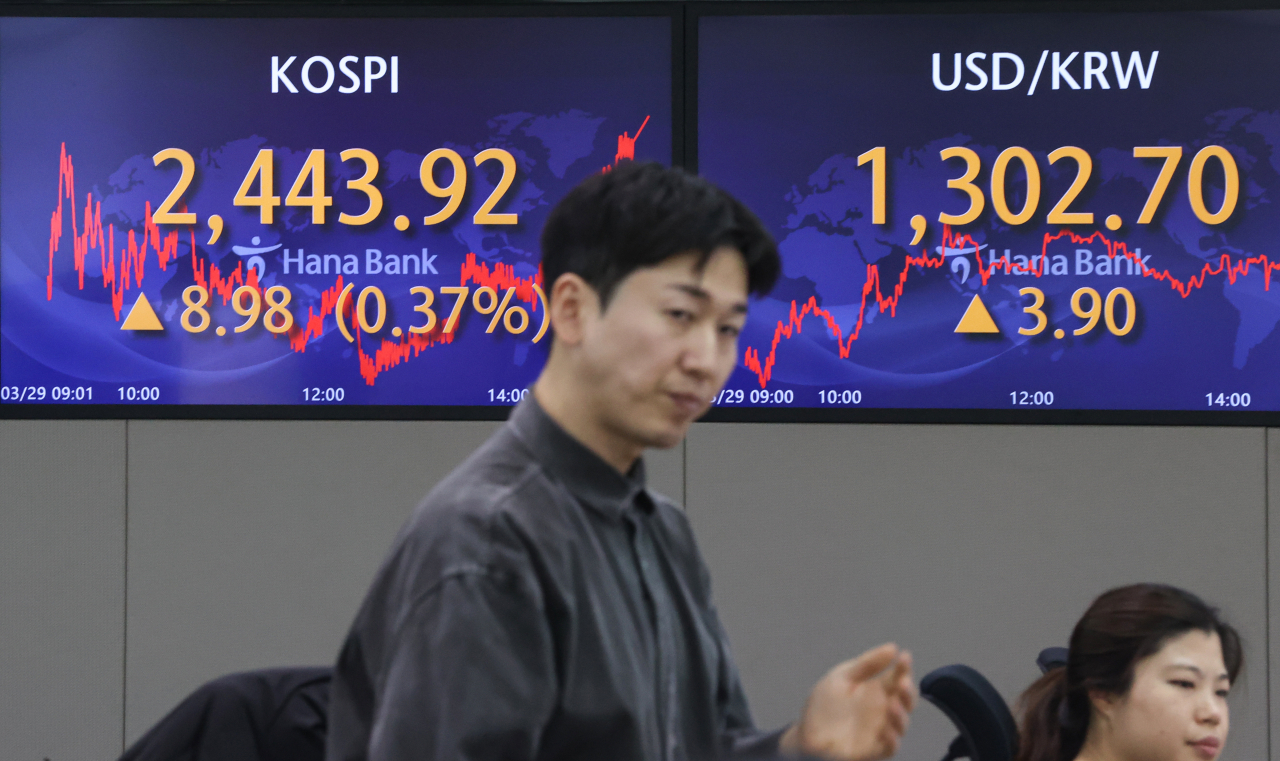[KH Explains] Why Korea is pushing for World Government Bond Index inclusion
After years of revamping market policies, Korea likely to join global sovereign bond index in September
By Im Eun-byelPublished : March 29, 2023 - 16:01

South Korea is expected to join the World Government Bond Index in September, a crucial step for it to attract more foreign funds, according to industry sources on Wednesday.
WGBI, managed by Financial Times Stock Exchange Russell, is one of the three major government bond indices, along with the Bloomberg-Barclays Global Aggregate Index and JP Morgan Government Bond Index-Emerging Markets.
Tracked by funds worth $2.5 trillion to $3 trillion, it measures the performance of sovereign bonds from 23 countries. The top 10 countries in the nominal gross domestic product are included in the list, except for Korea and India.
Since Korea made it onto the watch list last September, a prerequisite for its potential inclusion, the government has sought to enter the official list as early as March. But sources say its inclusion is more likely to come in September.
“We are aware that the market is expecting the inclusion to happen in September,” an official from the Finance Ministry in charge of the WGBI inclusion agenda said on condition of anonymity, adding it usually takes more or less two years for countries to move up the ranks on the WGBI list.
“The government will do its best to make the inclusion happen sooner, by taking the necessary measures,” the official added.
KB Securities also deems the inclusion to come in the second half of the year as it takes some time for the global index provider to assess feedback from market participants on the new initiatives proposed by the government.
“Expectation grew that Korea could make it on the WGBI list in March as the government has been putting in all efforts. The inclusion, however, is likely to happen in September,” KB securities analyst Lim Jae-kyun said.
Though Korea met all the other requirements, it was placed on the watch list last September as it received a Level 1 evaluation for its market accessibility, meaning that its market has low accessibility for foreign investors. At the time, the index provider assessed that Korea's market accessibility has the potential for an upgrade.
To get the local financial market up to global standards, the Korean government dropped the mandatory registration policy for foreigners investing in securities, exempted tax levied on interest and the capital gains of governmental bonds held by foreign nationals. It additionally proposed to extend the operating hours of its foreign exchange market.
FTSE Russell will require some time to see how the market rolls out under the newly changed measures.
Though the inclusion is likely to come later than initially expected, when it happens, it could lessen the government’s burden to come up with extra budget funds, the market projects.
Detailed plans for a supplementary budget have not been confirmed yet, but it is expected that tax revenue will fall short due to the economic slowdown, meaning that the government will be under financial pressure.
In this case, the government issues deficit-covering bonds to cover the cost, leading to an increase in the national debt ratio. But the inflow of foreign capital through state bonds could lessen the burden for the government.
The government predicts Korea will take up 2 to 2.5 percent of the index when it makes its debut, leading to an inflow of foreign capital worth $50 to $60 billion. Korea will then be the ninth-strongest country on the list.
"If Korea makes it to the WGBI list in September, it will lead to an inflow of foreign funds worth 15.4 trillion won ($11.8 billion) until the end of the year," Kang Seung-won, analyst from NH Investment & Securities said. "The inflow of foreign funds could minimize the financial impact of drawing up an extra budget."



















![[Today’s K-pop] Treasure to publish magazine for debut anniversary](http://res.heraldm.com/phpwas/restmb_idxmake.php?idx=642&simg=/content/image/2024/07/26/20240726050551_0.jpg&u=)